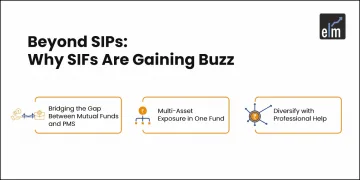You must have heard in the business channels that the RBI Monetary Policy is coming this week?
Yes! This week, one of the primary triggers will be the Reserve Bank of India’s monetary policy outcome. And you must be wondering why so much attention is on the monetary policy of RBI and how it affects the stock mark?
Don’t worry, we will discuss in this blog “How RBI Monetary Policy affects the Indian Stock Market”.
What is meant by Monetary Policy?
The Reserve Bank of India (RBI) controls the money supply in the economy by controlling the interest rates. This is done by increasing or decreasing the interest rates. RBI is the Central Bank of India. One of the responsibilities of every country’s central bank is to set interest rates. So, monetary policy is a tool by which they control the money supply.
When the RBI sets the interest rate, it has to strike a balance between growth and inflation. So, if the interest rates are high, that means the borrowing rates are high, and if corporations can’t borrow easily, they cannot grow. If companies don’t succeed, then the economy slows down.
Whereas when the interest rates are low, then borrowing becomes easier. This leads to more money in the hands of companies and consumers. With more money, there is increased spending, which means the sellers tend to raise prices, leading to inflation.
So, in order to strike a balance, the RBI has to consider all the factors and set a few key rates. Any imbalance in these rates can lead to economic chaos.
Understand how the role of RBI can protect your financial future
Key Repo Rates
The primary RBI rates which you need to track are as follows:
1. Repo Rate
Whenever banks want to borrow money, they mainly borrow from the RBI. Repo rate is the rate at which RBI lends money to other banks. If this rate is high, that means the borrowing cost is high, which leads to slow growth in the economy. One should note that markets don’t like the RBI increasing the repo rates.
2. Reverse repo rate
Reverse Repo rate is the rate at which RBI borrows money from banks. When banks lend money to RBI, certainly, RBI will not default, and thus the banks are happier for lending their money to RBI as opposed to a company.
However, when banks lend money to the RBI, the banking system’s money supply reduces. Therefore, a rise in the reverse repo rate is not significant for the economy because it tightens the money supply.
3. Cash reserve ratio (CRR)
Every bank must maintain funds with the RBI. The amount that they maintain depends on the CRR. If CRR increases, more money is removed from the system, which is not good for the economy.
Read more: Macroeconomic Indicators affecting Stock Markets from ELM School
How does it Affect the Indian Stock Market?
The RBI meets every two months in order to review the rates. This is one of the important events that the market watches out for.
Automobile stocks are highly sensitive to RBI monetary policy changes, as interest rate hikes make vehicle financing more expensive, reducing demand. Conversely, rate cuts make loans cheaper, boosting sales. Similarly, banks, housing finance, real estate, and metals are impacted by interest rates, with banks reacting to changes in credit growth, housing finance and real estate responding to mortgage affordability, and metals affected by infrastructure demand. In summary, automobile stocks tend to move quickly with interest rate decisions, influenced by consumer financing costs.
So, if there is an expectation of a rise in interest rates by 1% or 0.5%, and RBI does the same, then the stock prices won’t be impacted much from the monetary policy announcement as the RBI does the same.
However, there will be an impact on the stock market when the market is expecting RBI to increase the interest rates by 0.5% instead of increasing RBI cuts of the rates or does nothing at all.
Thus, it mainly depends on expectations and actual results.
You can also join our course on FINANCIAL POLICIES OF GOVT OF INDIA AND RBI
Bottomline
We hope you found this blog informative and use it to its maximum potential in the practical world. Also, show some love by sharing this blog with your family and friends and helping us in our mission of spreading financial literacy.
So, what are your expectations regarding the RBI Monetary Policy?
Let us know by commenting below:
Happy Investing!
You can also visit web.stockedge.com is a unique platform, which is 100% focused on research and analytics.








It is very heplfull information abut stock market. i am happy to read your blog.
thankyou
Hi,
We really appreciated that you liked our blog! Thank you for your feedback!
Keep Reading!
This is an awesome explanation keep it up very informative
Hi,
We really appreciated that you liked our blog! Thank you for your feedback!
Keep Reading!
Liked this blog…..very nicely explained the basic fundamentals of impact of RBI monetary policy.
Thank you.
Hi,
We really appreciated that you liked our blog! Thank you for your feedback!
Keep Reading!
Hi Team,
First of all, hats off to you for your moto “Spreading Financial Literacy”.
People around the country are educated to earn money, but they’re lack of knowledge about to manage it.
I loved to say that you are educating the people to make our country grow wealth!🤩
Hi,
We really appreciated that you liked our blog! Thank you for your feedback!
Keep Reading!